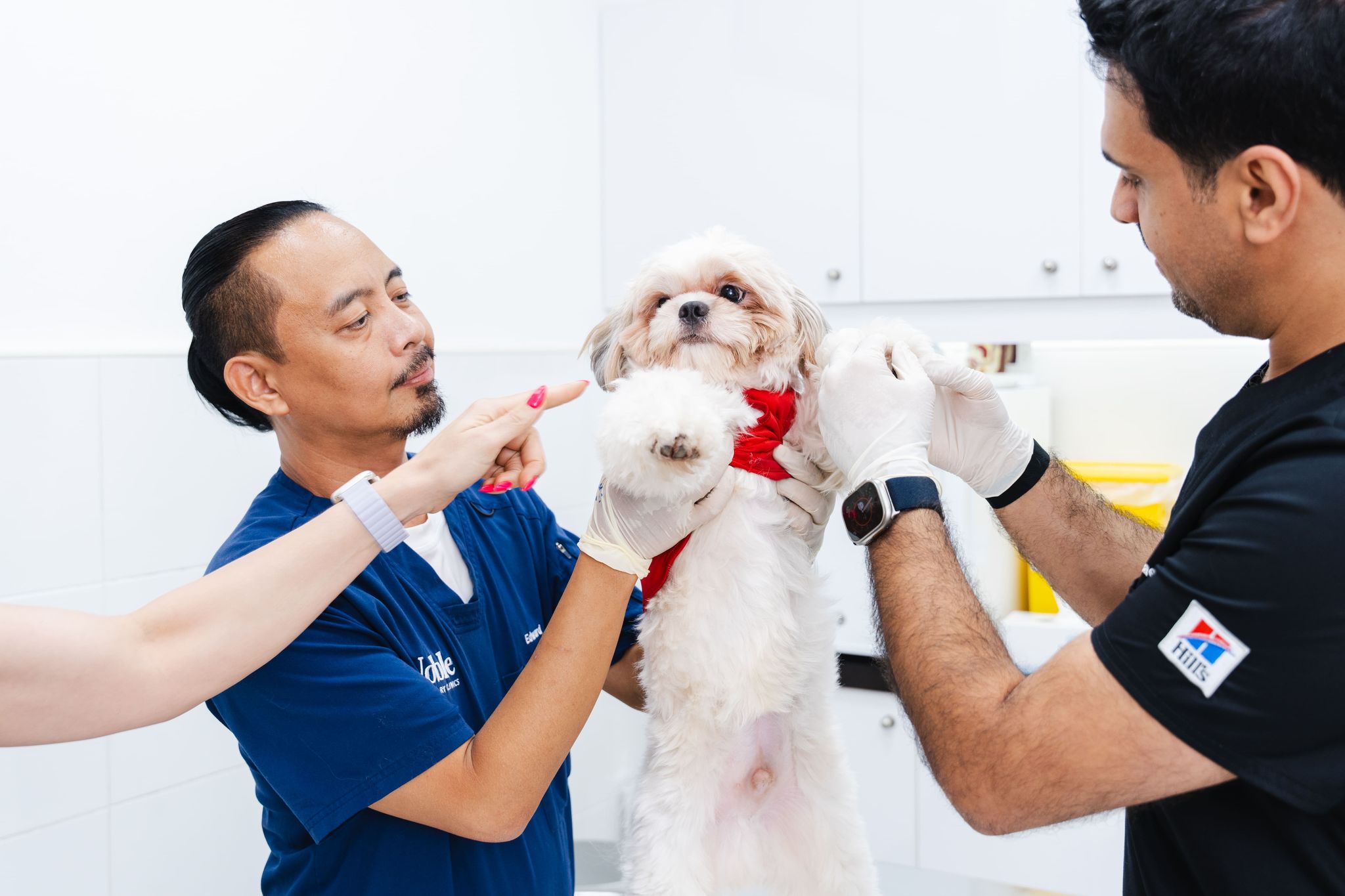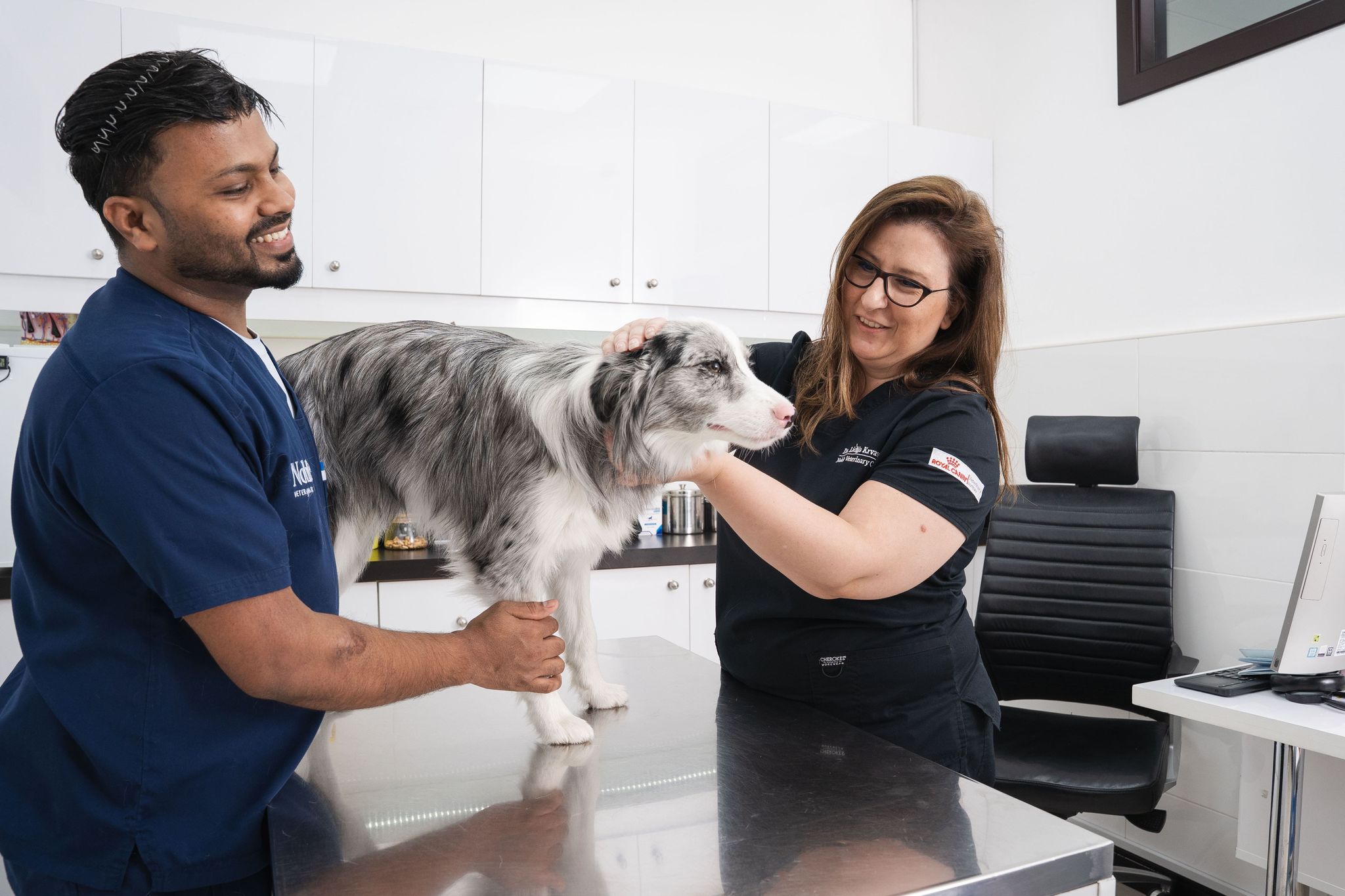


As much as we try to keep our dogs safe from the things we see, there will be some invisible threats out there. One of these is Giardia in dogs.
Giardia in dogs is more common than you might think. While it’s not always serious, the parasite can cause extreme discomfort for dogs. Without immediate care, our dogs will suffer the consequences.
But before that, let’s talk more about what Giardia in dogs is and how it’s treated.
What Is Giardia in Dogs?
Giardia is a microscopic protozoan that infects a dog’s intestines, causing a condition known as giardiasis. Unlike worms, which are larger and often visible in a dog's stool, Giardia is too small to see without a microscope.
This parasite exists in two forms:
Trophozoites. These live in the intestines and feed on nutrients, multiplying rapidly.
Cysts. These infectious trophozoites are shed in the dog's feces. They can survive in the environment for weeks to months.
How Contagious is Giardia in Dogs?
Dogs contract Giardia by ingesting the cysts from contaminated water, food, soil, or feces. When the eggs get inside the body, they develop into trophozoites. They then attach to the dog's intestinal walls and start reproducing. From here, they can cause several digestive issues.
Giardiasis is a widespread condition that can affect dogs of all ages. Puppies, seniors, and dogs with compromised immune systems are vulnerable.
Giardia Symptoms in Dogs

Giardia infections in dogs are challenging to discern at first because they have varying symptoms. Some dogs present no symptoms, while others suffer tremendously. The symptoms of Giardia in dogs include:
Diarrhea. The most common symptom of this disease in dogs is diarrhea. Canine diarrhea resulting from giardiasis often has a soft, watery, or greasy consistency. It may also contain mucus. The stool may also have an unusually strong, foul odor.
Weight Loss. Because Giardia interferes with nutrient absorption, infected dogs may experience gradual weight loss despite eating normally. This is a major concern in puppies because they need proper nutrition for growth and development.
Vomiting. Some dogs may experience occasional vomiting, though this is less common than diarrhea. When it occurs, nausea, lip-smacking, or drooling may accompany the condition.
Dehydration. Frequent diarrhea can almost always lead to dehydration, particularly in puppies, old dogs, or dogs with weaker immune systems. The common indicators of dehydration include dry gums, excessive panting, and loss of skin elasticity.
Lethargy. Dogs with giardiasis may become less active and more tired than usual. Dehydration, nutrient loss, or the body's immune response to the Giardia infection can cause lethargy.
Abdominal Discomfort. Some dogs may exhibit signs of stomach pain or discomfort. This can be seen as whining, restlessness, or a hunched posture. Dogs can also experience bloating and gas.
Poor Coat Quality. Chronic giardiasis can cause a dull, rough, or thinning coat. This happens because of malnutrition and poor health.
How Is Giardia in Dogs Diagnosed?
Because the symptoms of Giardia in dogs can resemble other digestive issues, a proper veterinary diagnosis is essential. Diagnosing giardiasis is not always straightforward, mainly because the eggs are not always present in a single stool sample.
We’ll start by assessing your dog's symptoms and medical history. Your input here will be greatly helpful.
Antigen Test. The antigen test detects Giardia protein instead of the parasites eggs. This test is highly sensitive.
Direct Smear. Our experts place a small sample of fresh stool on a slide and examine it under a microscope for this parasite. This test works best with exceptionally fresh samples but is not always conclusive.
Fecal Flotation Test. A standard fecal examination involves mixing a stool sample with a solution that helps separate parasite cysts. We then examine the sample under a microscope. However, since Giardia cysts are not always present in every sample, a single test may miss an infection.
PCR Testing. These tests can detect the parasite's DNA in your dog's stool sample. It’s considered one of the most accurate methods to confirm a Giardia infection in dogs. However, it does come at a higher cost.
Treatment for Giardia in Dogs

The treatment plan will eliminate the parasite and manage your dog’s symptoms. This will make use of antiparasitic medications, supportive care, and environmental changes at home.
Medications for Giardia
Our vets typically recommend two options: fenbendazole and metronidazole. Fenbendazole is one of the most commonly prescribed medications for Giardia in dogs. It’s generally well-tolerated and accepted by dogs, especially puppies.
The second option is metronidazole. It’s another medication for Giardia, but some strains have been shown to be resistant to it. This is why fenbendazole is often the first choice for giardiasis.
Supportive Care and Management
Because Giardia causes diarrhea and other symptoms, the treatment methods will focus on these. Managing these conditions with supportive care techniques and home adjustments will be part of the process.
Hydration. We will administer IV fluids at the clinic to help your dog recover from dehydration. In mild cases, encouraging your dog to drink water at home will be enough.
Digestive Support. A bland diet with no additives will also be recommended. This can be simple boiled chicken and rice. Probiotics for dogs can also support gut health and restore beneficial bacteria.
Home Cleaning. Sanitize the house and make sure to wash your dog's bedding, pillows, bowls, and toys with hot water, soap, and pet-safe disinfectants. Also, bathe your dog regularly, especially at the rear end.
Vet Tips: How to Prevent Giardia in Dogs?
Protect your dog from Giardia by taking these easy steps:
Provide Clean Drinking Water
Give your dog plenty of fresh water at home. Don’t let them drink from puddles or standing water outside. These are hot spots for parasites.
Maintain Good Hygiene
In shared spaces, make sure to dispose of feces immediately. Clean your dog’s bowls daily with hot water and pet-safe disinfectants. Bathe your dog regularly, or you can have them professionally groomed.
Keep Living Areas Clean
Regularly wash your dog’s beds, toys, and crates with hot water and pet-safe disinfectants. This reduces the chances of Giardia from the environment.
Be Cautious in High-Risk Areas
Dog parks, kennels, and shelters are common places where the parasite spreads. If your dog spends time in these places, limit contact with other pets.
Regular Checkups
Routine vet visits and fecal tests can help catch Giardia infections early. This is especially helpful for puppies or dogs living with other dogs at home.
"A healthy dog starts with a strong gut, body, and smile."
- Dr. Mafalda Sardinha
Final Thoughts
Fortunately, Giardia in dogs can be managed and treated. It just takes immediate action and care. Since the protozoan spreads easily, proper cleaning and hygiene are just as important as medication to prevent reinfection. The best way to protect your dog from Giardia is through prevention.
Frequently Asked Questions
Share











